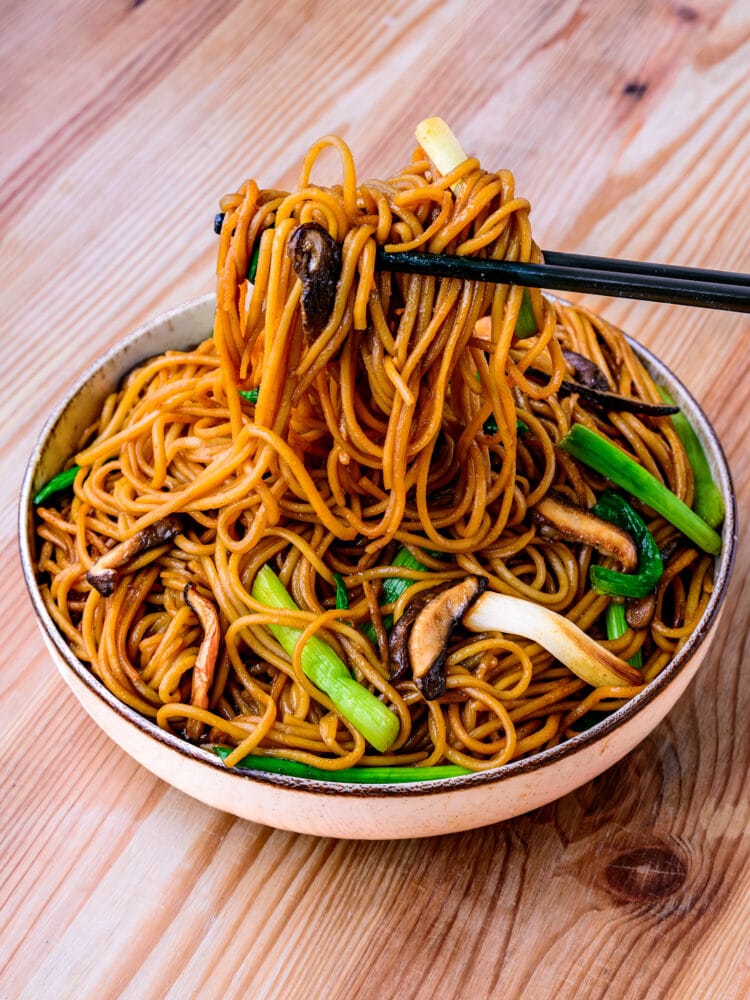Discover a delicious recipe for longevity noodles, a simple, quick, and extremely tasty noodle dish
What are longevity noodles?
In the Chinese culinary world, Yi Mein noodles, also known as e-fu noodles, hold a special place during festivities, embodying the hope for a prolonged existence. Represented by the characters 长寿面 or 伊面, they are not just simple dishes but carriers of wishes for prosperity, good fortune, and, naturally, longevity.
These noodles, which have stood the test of time since the Han dynasty, are a staple of Chinese New Year celebrations, as well as birthdays and commemorations, revealing their deep cultural and symbolic imprint.
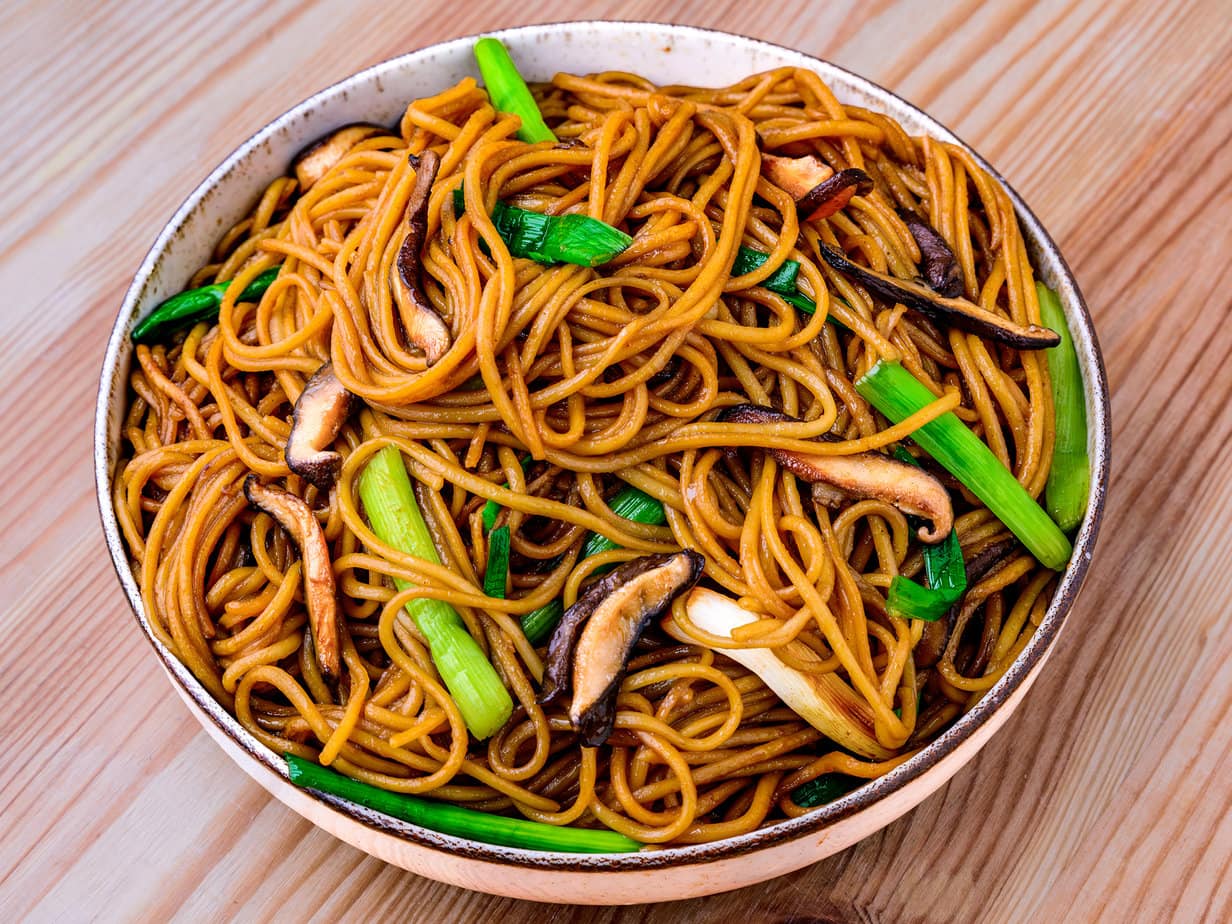
Tradition dictates that, during Chinese New Year and birthday ceremonies, these long strands of pasta are served intact, without being cut, to maximize positive vibes. Eating these noodles without breaking them with your teeth is considered good luck, an amusing but challenging culinary challenge for home cooking enthusiasts.
Chinese cuisine is rich in meaningful dishes: a whole fish to signify abundance, Nian Gao for prosperity, and Tang Yuan to evoke family reunion. Longevity noodles align with this tradition, adding a touch of significance to every celebratory banquet.
Northern noodles or Cantonese noodles?
The Cantonese version of these noodles favors a soft and spongy texture, thanks to egg noodles braised in a rich, flavorful sauce.
In contrast, Northern China presents a variant where the noodles, exceptionally long and hand-pulled, serve as a visual reminder that the length of the noodles symbolizes the duration of life, even going so far as to offer a single, immense noodle per serving!

Yi Mein noodles, a must for an authentic result
Yi Mein, with their distinctive character, stand out for their unique flavor and texture, thanks in particular to the use of unique ingredients such as sodium bicarbonate or carbonated water during their preparation.
Their mandatory passage through the deep fryer before drying gives them this special texture, both flexible and capable of generously absorbing sauces.
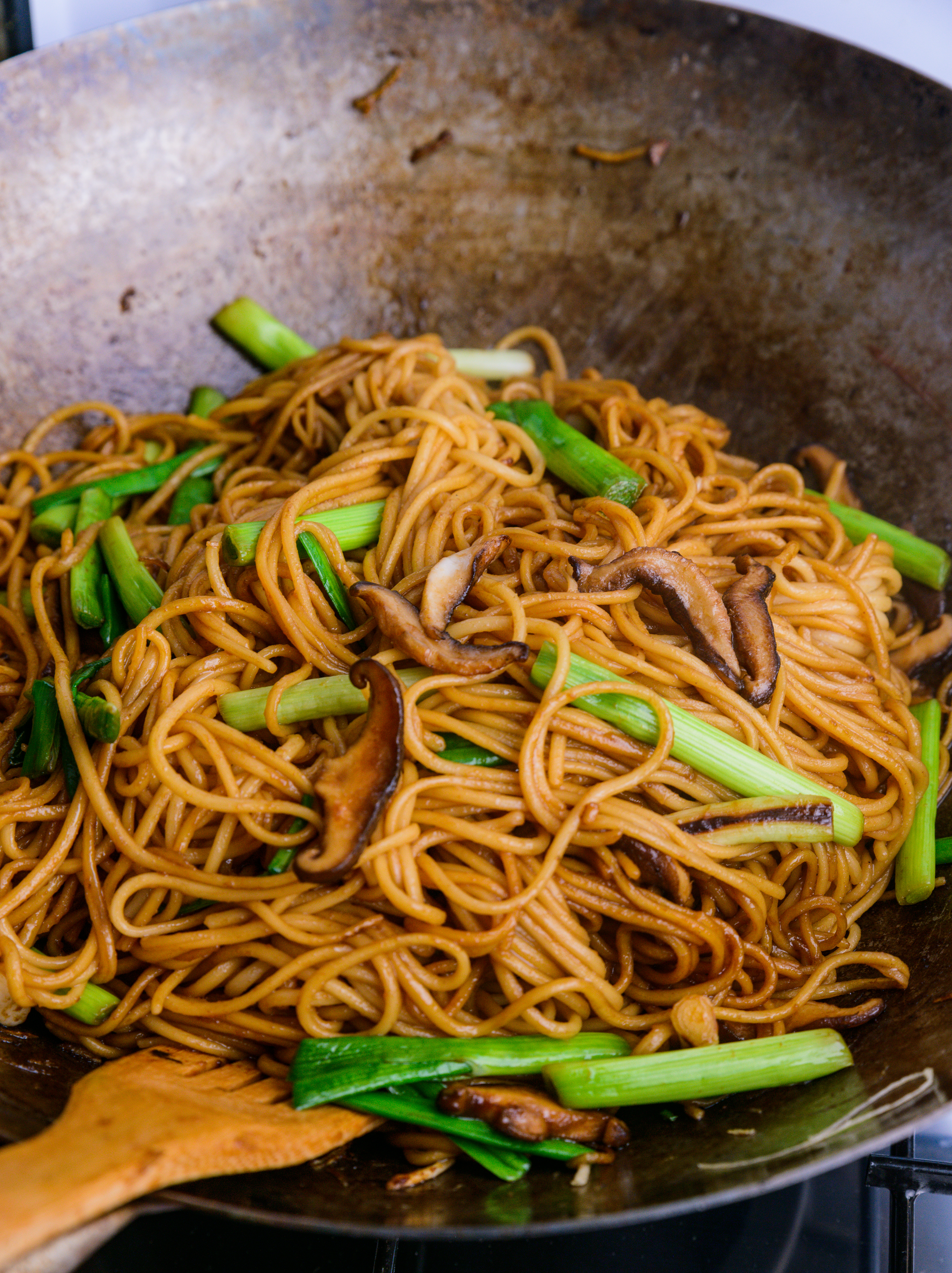
This specific treatment gives them a remarkable texture: smooth, flowing, elastic, ideal for capturing the flavors of sauces. Their resistant consistency makes them able to withstand energetic handling with chopsticks, without risk of breakage.
Available in Asian grocery stores, these noodles can be recognized by their red box which provides instructions for successful preparation. They are called 伊面 or E-fu noodles and are offered in a dried form.

If you struggle to find Yi Mein, you can fall back on classic egg noodles, those frequently used in Chow Mein recipes. Panait can work too. Another possible alternative: instant noodles. Although they are thinner, they can serve as a satisfactory replacement, their texture approaching that of Yi Mein.
The main ingredients of Longevity Noodles
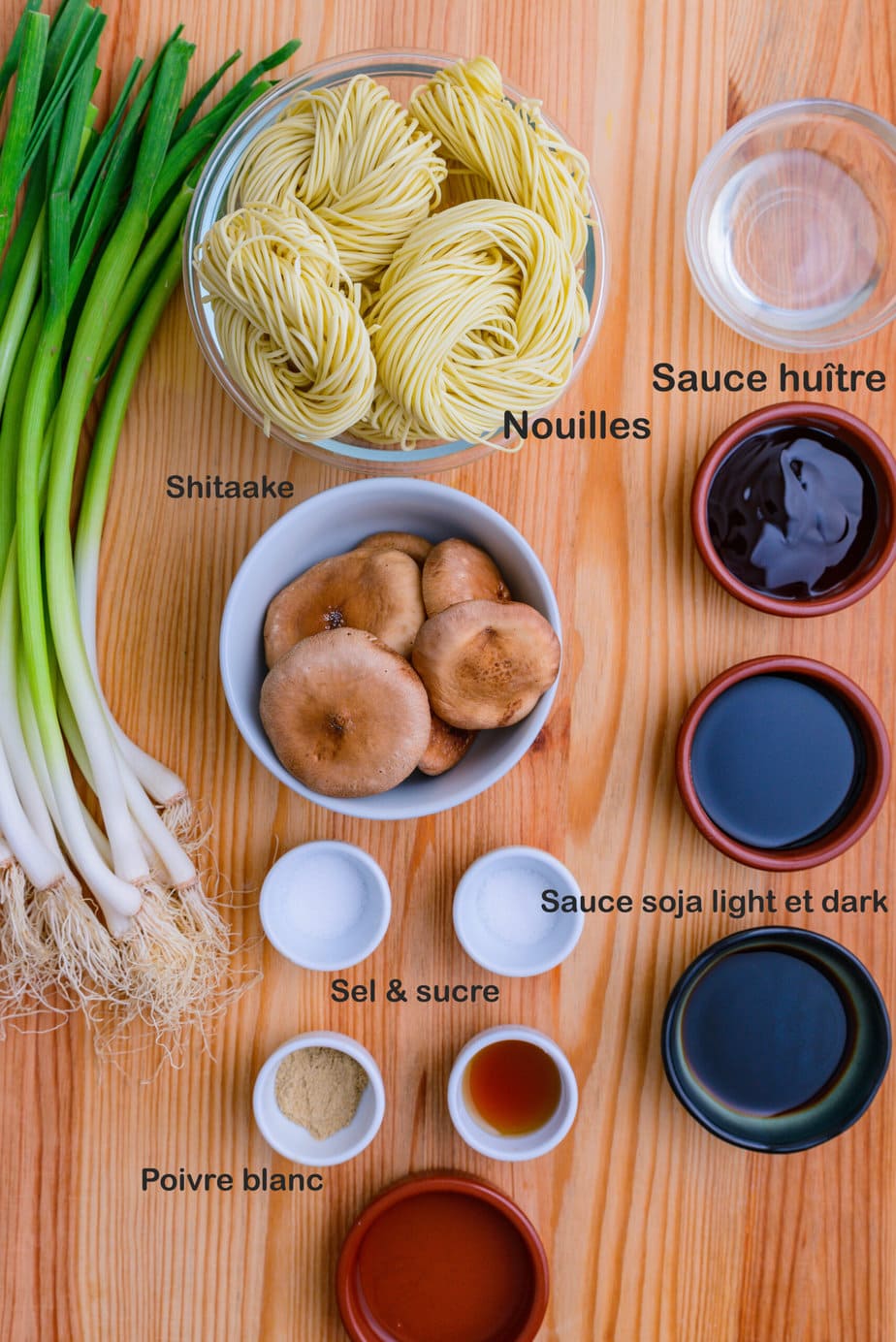
Light and dark soy sauce: bring a subtle salty flavor and enhance the overall taste of the dish
The oyster sauce: brings a distinct umami flavor, with a balance between salty, sweet, and a touch of marine flavor.
The sesame oil: brings a rich nutty note and depth, accentuating the flavors of Asian dishes.
White pepper: a subtle spicy touch, with a slightly fermented flavor and less pronounced than black pepper.
Shitaake mushrooms: the kings of mushrooms, bring an intense umami taste and their beautiful meaty texture is divine
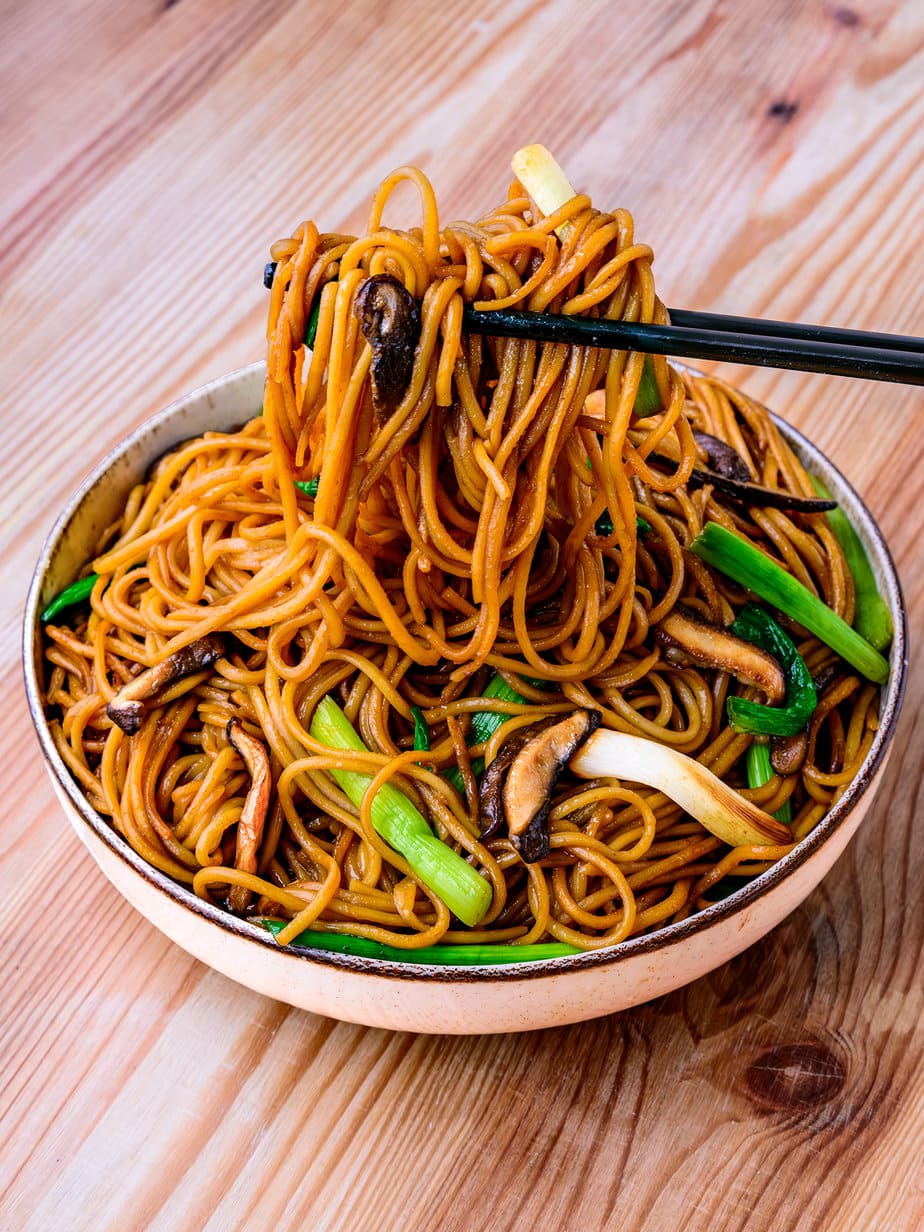
Authentic Longevity Noodles – Yi Mein
Equipment
- 1 Wok
Ingredients
- 3 liters of water
- 340 g of Yi Mein noodles dry, substitute with any noodles
Sauce
- 1 teaspoon of sugar
- 0.25 teaspoon salt
- 1 tablespoon of hot water
- 2 teaspoons light soy sauce
- 2 teaspoons dark soy sauce
- 2 tablespoons of oyster sauce
- 1 teaspoon sesame oil
- 1 pinch white pepper
Stir-fry
- Oil
- 5 shiitake mushrooms fresh or rehydrated; thinly sliced
- 225 g green onions cut into 5 cm pieces, white and green parts separated
Instructions
- Bring 3 liters of water to a boil in a large wok or pot to pre-cook your Yi Mein noodles. Once the water is boiling, add the noodles and cook them for 3 to 4 minutes to keep them firm and chewy. Rinse them under cold water to stop the cooking process. Drain immediately and set aside.3 liters of water, 340 g of Yi Mein noodles
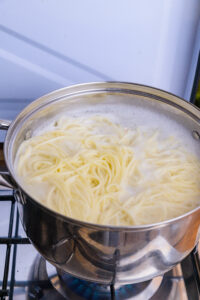
- In a bowl, dissolve the sugar and salt in hot water. Add the remaining ingredients and mix until homogeneous.1 teaspoon of sugar, 0.25 teaspoon salt, 1 tablespoon of hot water, 2 teaspoons light soy sauce, 2 teaspoons dark soy sauce, 2 tablespoons of oyster sauce, 1 teaspoon sesame oil, 1 pinch white pepper
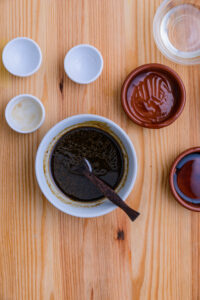
- Heat the wok until it starts to smoke and spread a little oil around the edges. Add the mushrooms and the white parts of the green onions, and stir-fry for 30 seconds.5 shiitake mushrooms, 225 g green onions
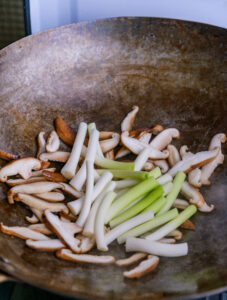
- Add the noodles (still warm) and stir-fry for 20 seconds. Pour the sauce over the noodles and continue to stir-fry until the sauce coats the noodles well. Add oil if it sticks too much340 g of Yi Mein noodles
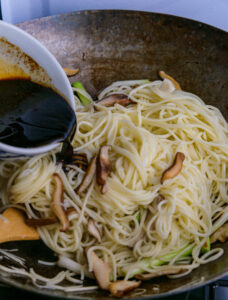
- Incorporate the green parts of the green onions and mix until they turn bright green and the noodles are hot, this will take 1 to 3 minutes. Serve immediately.225 g green onions
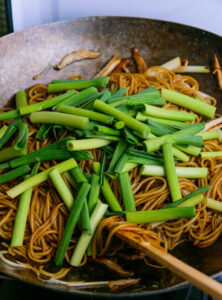
Notes
Nutrition
Culinary sources
For this article, I used the recipe from the blog “The Woks of Life”, slightly simplified, with quantities adjusted according to my preferences
